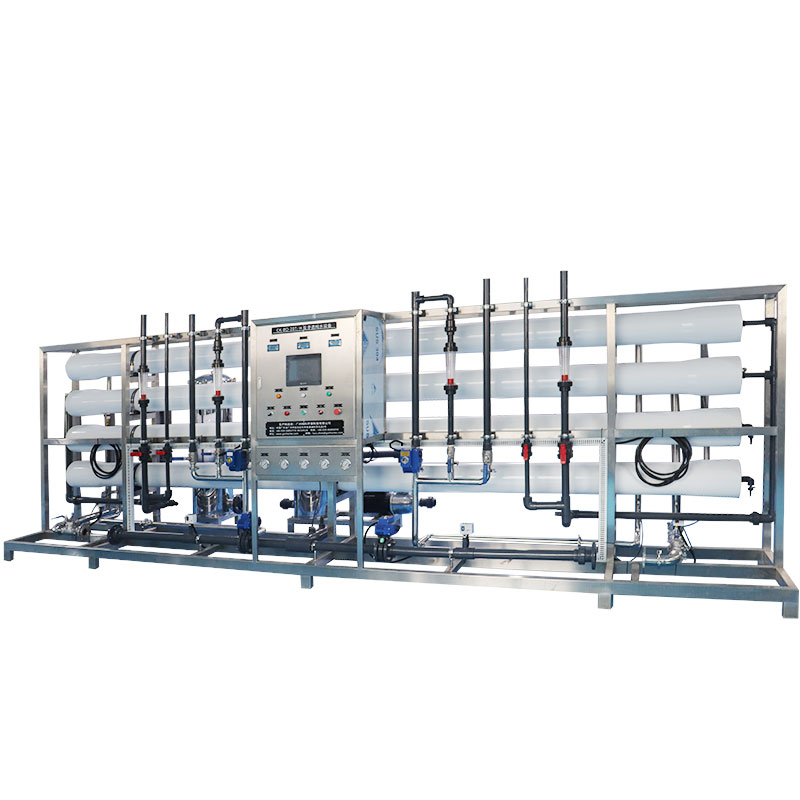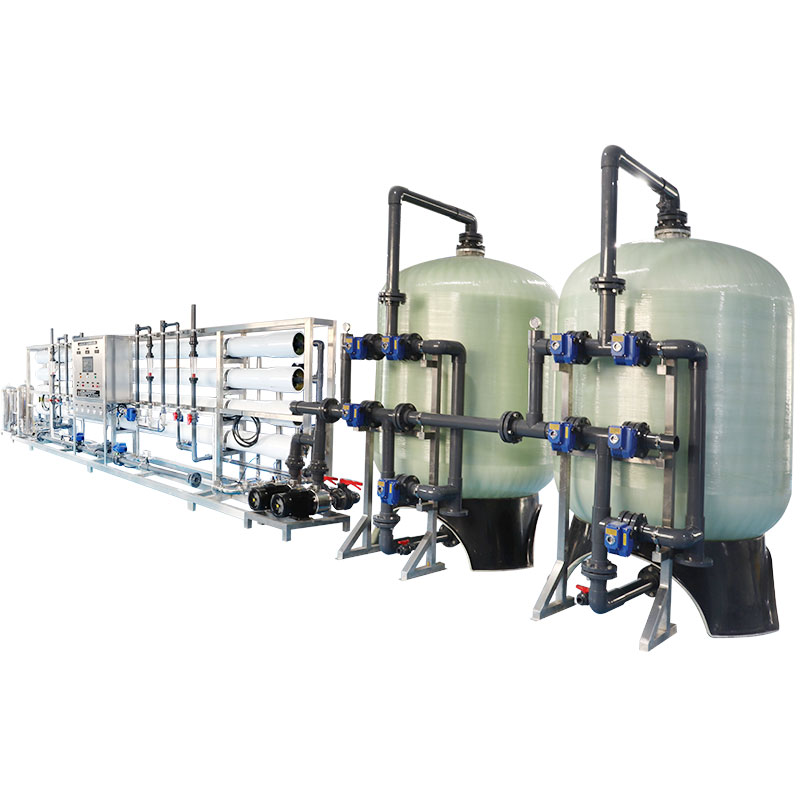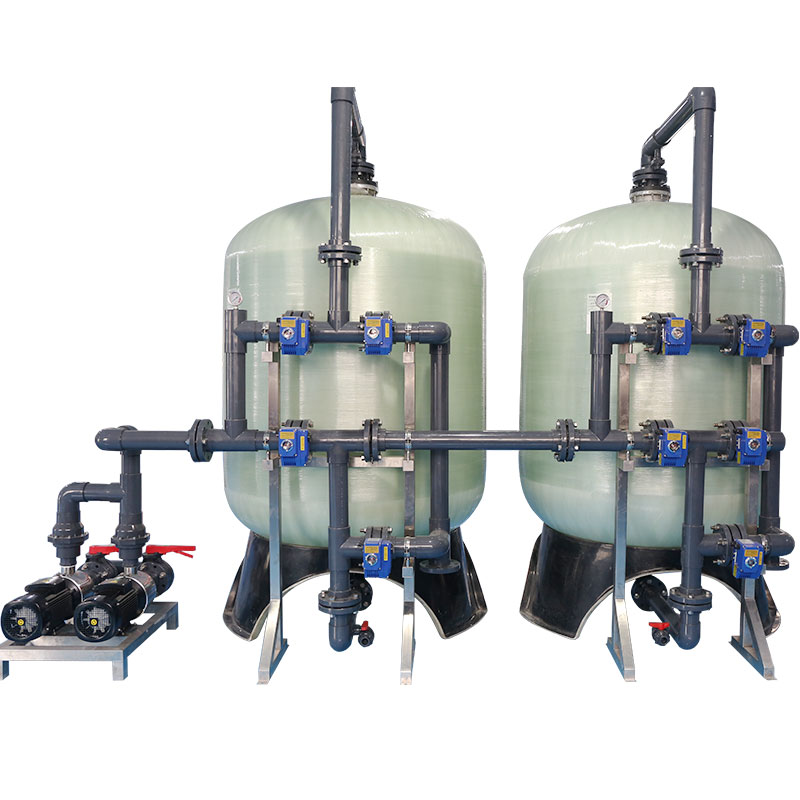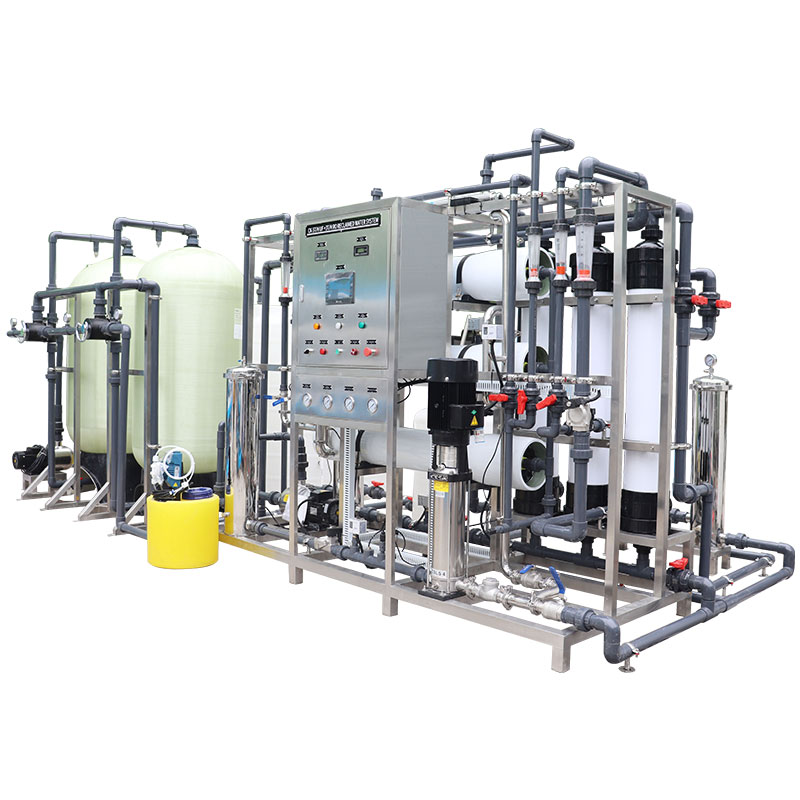What is a pond water filtration system?
Ponds are not only a beautiful part of the landscape, but also a part of the ecological environment. However, to keep the pond clear and healthy, water quality management is essential. At this time, the pond water filtration system is particularly important.
This article will explore in detail what a pond water filtration system is, its key role in maintaining the health of the water body, and introduce some of the best filtration equipment to help you choose the right solution.

What is a pond water filtration system?
A pond water filtration system is a set of devices used to keep the pond water clean, clear and suitable for biological survival. The main function of this system is to remove impurities in the water, such as suspended particles, rotting plants, organic waste, fish excrement and algae, thereby maintaining the ecological balance and beauty of the pond.
The water quality of the pond is easily affected by various external factors, such as rainfall, fallen leaves, insects, and even fish activities in the pond. These factors can cause the water to become turbid, produce odors, and even endanger the health of the organisms in the pond. In order to deal with these problems, the pond water filtration system purifies the water body through physical, chemical and biological filtration to ensure that the water quality reaches a good state.
1. Physical filtration
Physical filtration is the basis of pond water filtration system, which removes suspended solids, silt, leaves and other particulate impurities from water through filter media. This type of filtration usually relies on mechanical devices such as screens, filter cloths or filter pads to intercept larger impurity particles by allowing water to flow through these media.
A significant advantage of physical filtration is that it can quickly and significantly improve water clarity, but it cannot remove dissolved substances in the water or deal with the problem of algae growth. Therefore, physical filtration is usually used in combination with other filtration methods to ensure comprehensive purification of water quality.
2. Biological filtration
Biological filtration is a very critical part of the pond water filtration system, especially in maintaining ecological balance. Biological filtration relies on the action of beneficial microorganisms that can break down organic waste in the water, such as fish excrement, rotting plants, etc., into harmless substances.
Usually, biological filtration establishes a micro-ecosystem by providing a medium with a large surface area (such as bio balls or ceramic rings) in the filter, allowing microorganisms to attach to these media and reproduce. This system can effectively remove ammonia nitrogen and nitrite from the water, prevent toxin accumulation, and protect the biological health in the pond.
3. Chemical filtration
Chemical filtration is mainly used to treat dissolved pollutants in water, such as heavy metals, chlorine, odors, and organic compounds. Chemical filters usually use activated carbon or other adsorbent materials to absorb these pollutants, thereby further purifying the water quality.
Although chemical filtration can quickly remove harmful substances in water, its effect is often short-term and the filter material needs to be replaced regularly. Therefore, chemical filtration is usually used as a supplement to physical and biological filtration for specific water quality problems.

What is the best equipment to filter pond water?
When choosing a pond water filtration system, you need to consider the size of the pond, the number of fish, the plant coverage, and the specific needs of water quality maintenance. The following are some common and efficient pond water filtration equipment that are widely used in different applications.
1. Pressure filter
Pressure filter is a common pond filtration equipment suitable for small and medium-sized ponds. It works by pumping water into the filter through a pump. After the water passes through the filter medium, impurities are filtered out and the purified water is returned to the pond.
Advantages of pressure filter:
● Compact design: Pressure filters are usually compact in design and do not take up too much space. They can be hidden at the edge of the pond.
● Multiple filtration: Many pressure filters integrate physical, biological and chemical filtration functions to provide comprehensive water purification.
● Automatic backwash: Some advanced models are equipped with an automatic backwash function, which can automatically clean the filter media and reduce maintenance workload.
Disadvantages of pressure filters:
● High power consumption: Pressure filters require continuous operation of the pump, which may result in high energy consumption.
● Limited scope of application: Suitable for small and medium-sized ponds. Ponds with large water bodies may require multiple filters in parallel.
2. Gravity filter
Gravity filters use gravity to draw water from the pond into the filter device, and the filtered water returns to the pond by gravity. This type of filter usually has a large capacity and is suitable for medium and large ponds.
Advantages of gravity filters:
● Efficient treatment of large water volumes: Gravity filters can handle larger water bodies and are suitable for large ponds that require high flow treatment.
● Stable filtration effect: Since it does not rely on pump pressure, gravity filters operate more stably, reducing equipment wear and the risk of failure.
● Low maintenance cost: Due to its simple structure, gravity filters usually require less maintenance and have low long-term operating costs.
Disadvantages of gravity filters:
● Complex installation: Gravity filters are usually large in size, and more space needs to be reserved during installation, and the height difference of water level needs to be considered.
● Not suitable for small ponds: For ponds with smaller water bodies, the filtration efficiency of gravity filters may be too high, resulting in unnecessary waste of resources.

3. Trickling filter (biotower)
Trickling filter is a device specially used for biological filtration. It drips pond water into a tower filled with biological filter material, uses natural ventilation to provide oxygen to microorganisms, and enhances the biological filtration effect. This filtration method is particularly suitable for ponds with high fish density.
Advantages of trickling filter:
● Powerful biological filtration: Trickling filter provides a large surface area for beneficial bacteria to attach, which can effectively remove ammonia nitrogen and nitrite.
● Improve the oxygen content of water quality: The natural ventilation design of the trickling filter can increase the oxygen content in the water, which is conducive to the healthy growth of fish.
● Stable operation: The filtration process of the trickling filter is stable, and the water quality can be continuously maintained in good condition.
Disadvantages of trickling filter:
● Large space occupation: Trickling filter is usually large in size and requires a certain amount of installation space.
● High initial cost: The initial construction cost of the trickling filter is high, and the design of the ventilation and drainage system needs to be considered.
4. Ultraviolet (UV) sterilizer
The UV sterilizer is a device specifically used to control algae and pathogens in ponds. It emits strong ultraviolet rays to destroy the DNA structure of microorganisms in the water and prevent their reproduction and growth.
Advantages of UV sterilizer:
● High efficiency sterilization: UV sterilizer can effectively control algae outbreaks, reduce water greening, and keep ponds clear.
● Safe and environmentally friendly: No chemical agents need to be added, and UV sterilizers provide an environmentally friendly method of water purification.
● Easy to install and maintain: UV sterilizers are usually simple in structure, easy to install, and have low maintenance costs.
Disadvantages of UV sterilizer:
● Not suitable as a single filtration device: UV sterilizers are mainly used to control microorganisms, cannot replace physical and biological filters, and need to be used in combination.
● Limited lamp life: UV lamps need to be replaced regularly, otherwise the effect will be significantly reduced.
5. Filter beds and filter pads
Filter beds and filter pads are simple but highly effective physical filtration devices that remove suspended particles from pond water through multiple layers of filter pads. They are usually used in small ponds or as a supplementary device to other filters.
Advantages of filter beds and filter pads:
● Low cost: filter beds and filter pads have a simple structure and low price, making them suitable for pond management with limited budgets.
● Easy to install and replace: These devices are easy to install and maintain, and only require regular replacement of filter pads.
● Improve water transparency: filter beds can significantly improve water transparency and maintain the beauty of the pond.
Disadvantages of filter beds and filter pads:
● Limited filtration effect: filter beds mainly target large particles of impurities and have limited processing capacity for tiny particles or dissolved substances.
● Frequent cleaning required: filter beds are prone to accumulate impurities and need to be cleaned regularly, otherwise the filtration effect will be affected.

How to choose the right pond filtration equipment?
When choosing a pond filtration device, the following factors should be considered:
● Pond size and water capacity: large ponds require high-capacity filtration systems, while small ponds can choose simple filtration equipment.
● The amount and type of organisms in the pond: A pond with a high fish density will require a more powerful biological filtration system, while a pond dominated by plants may not require complex equipment.
● Types of water quality issues: If your pond often has cloudy water or algae blooms, consider using a UV sterilizer or a multi-layer filtration system.
● Budget and maintenance requirements: Efficient filtration systems are usually more expensive but require less maintenance; simple systems are cheaper but may require more maintenance.




